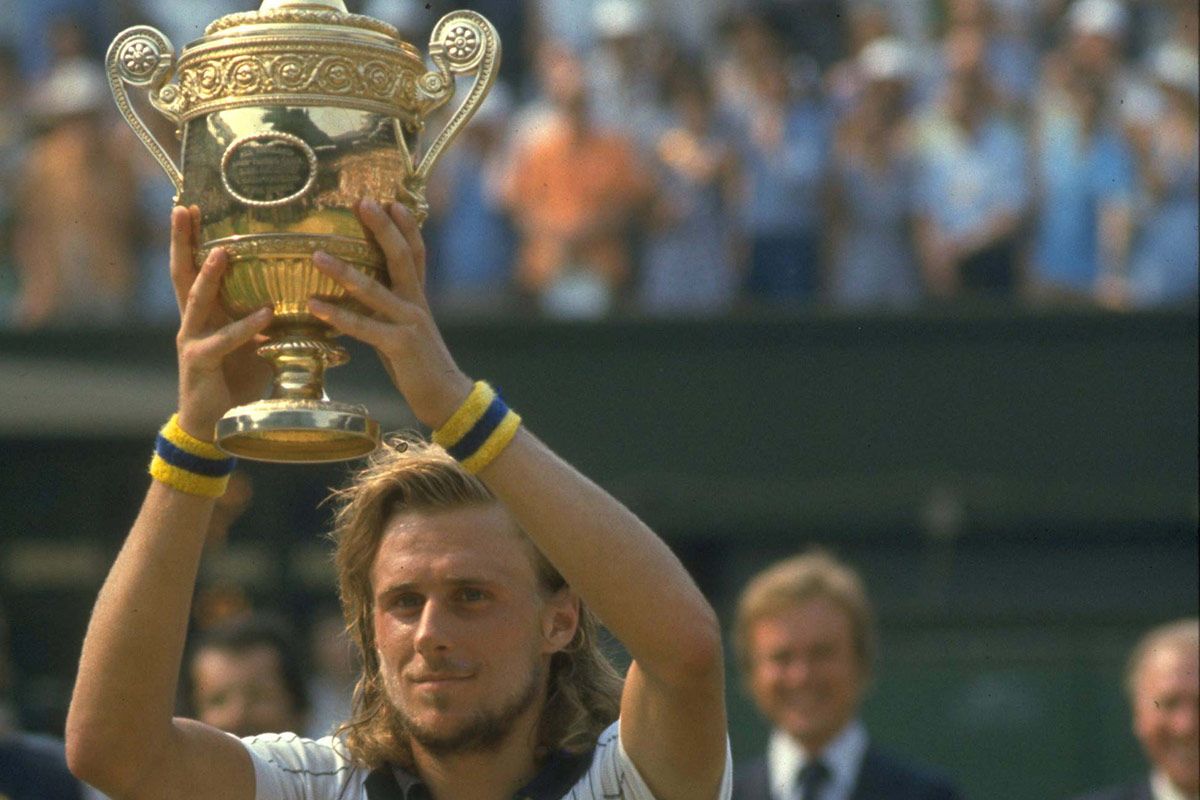
Sweden
Stockholm, Sweden
June 6, 1956
Right-handed, Two-handed backhand
Focus solely on what might have been in Björn Borg’s curtailed career, and you can forget the magnificence of his seven-year reign of the men’s game between 1974 and 1981 that made him, at that time, the most decorated grand slam champion of the Open era. Focus solely on Borg’s impact between the lines, however, and you miss the impact his rock-and-roll allure had on the sport in its heyday.
“You have to find it. No one else can find it for you.”
Björn Borg
Borg was the original tennis hipster; the only thing cooler than his standing in the cultural firmament was his poker-faced demeanor on court, earning him the nickname the Ice Man. Tactically, the Swede was a conscientious contrarian, a fleet-footed baseliner in the age of the net-rusher, with a forehand and two-handed backhand laced with levels of topspin the likes of which had never been seen before. It was a blueprint for the game we know today, and made Borg versatile enough to claim three ‘Channel Slams’, winning both Wimbledon and Roland Garros in a matter of weeks in 1978, 1979 and 1980.
“If you’re afraid of losing, then you daren’t win.”
Björn Borg
While on the surface Borg was the epitome of calm, the rise of John McEnroe and the struggle of a young life devoted to tennis was taking its toll. After winning one of the great grand slam finals to claim his fifth consecutive Wimbledon triumph in 1980, his overriding emotion was relief rather than joy.
“My greatest point is my persistence. I never give up in a match.”
Björn Borg

It was the first of their four meetings at the majors – and McEnroe would win the next three, twice denying Borg the US Open title that would elude him in four finals. After the last, in 1981, Borg famously left the court before the trophy ceremony, escaped the stadium and jumped into a Volvo station wagon. It seemed unthinkable that, at the age of 25, his career could be over, but it proved to be his last appearance at a major. In 1983, he retired – and while there were fleeting comebacks, Borg would never again hit the heights.
“I wanted to win, even in practice.”
Björn Borg
Nevertheless, his legacy lives on in the popularity of the sport, particularly in Sweden. As a child Borg set himself two goals: to represent his country in Davis Cup and to play on Centre Court at Wimbledon. He surpassed both, leading Sweden to their first Davis Cup title in 1975 – the first won by a nation other than Great Britain, France, the United States and Australia.
“Winning is the most beautiful thing for a tennis player,” Borg once said. “It doesn’t matter how much you win, you’re so happy, it’s a wonderful feeling. You just feel like you’re at the top of the mountain. It’s like a dream.”
“Sure you have feelings and you get emotional and angry but I kept everything inside because I think I still had that thought in mind – I didn’t want to get suspended again.”
Björn Borg

“He had this thing about him that was inexplicable. I don’t know what it is, why it is, but it is. Certain people have this incredible aura that I can’t explain without having to do anything. It’s like he got into his superman outfit.”
– Speaking in HBO documentary Fire and Ice
Borg’s match/win percentage at the majors (141-16), is unsurpassed in the Open era. No player has a better record at Wimbledon (92.7) or a better five-set record (88.9). On three occasions he won majors without dropping a set, while his 41 consecutive Wimbledon wins remains a record at the Championships.